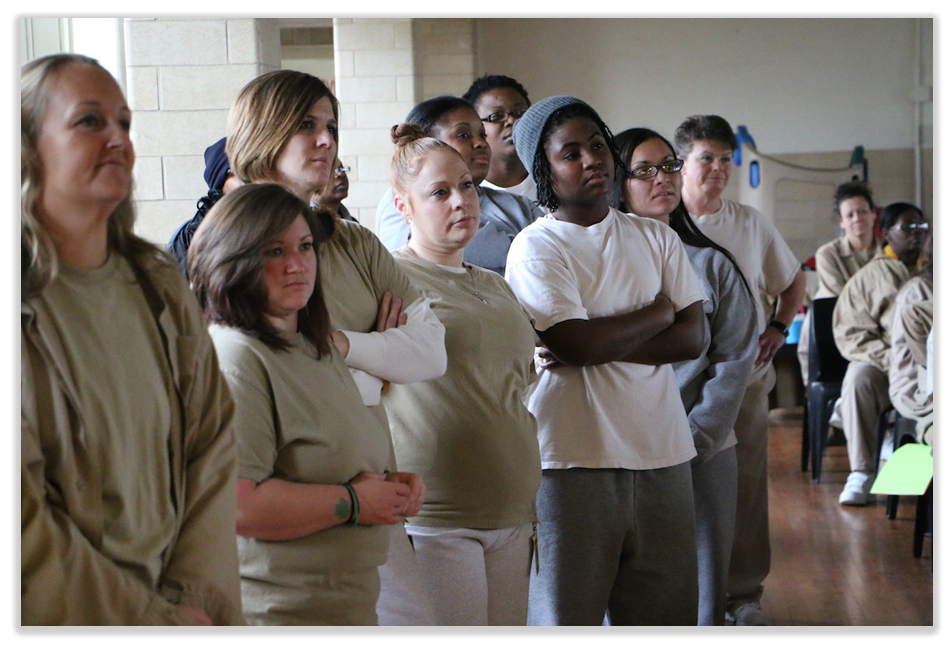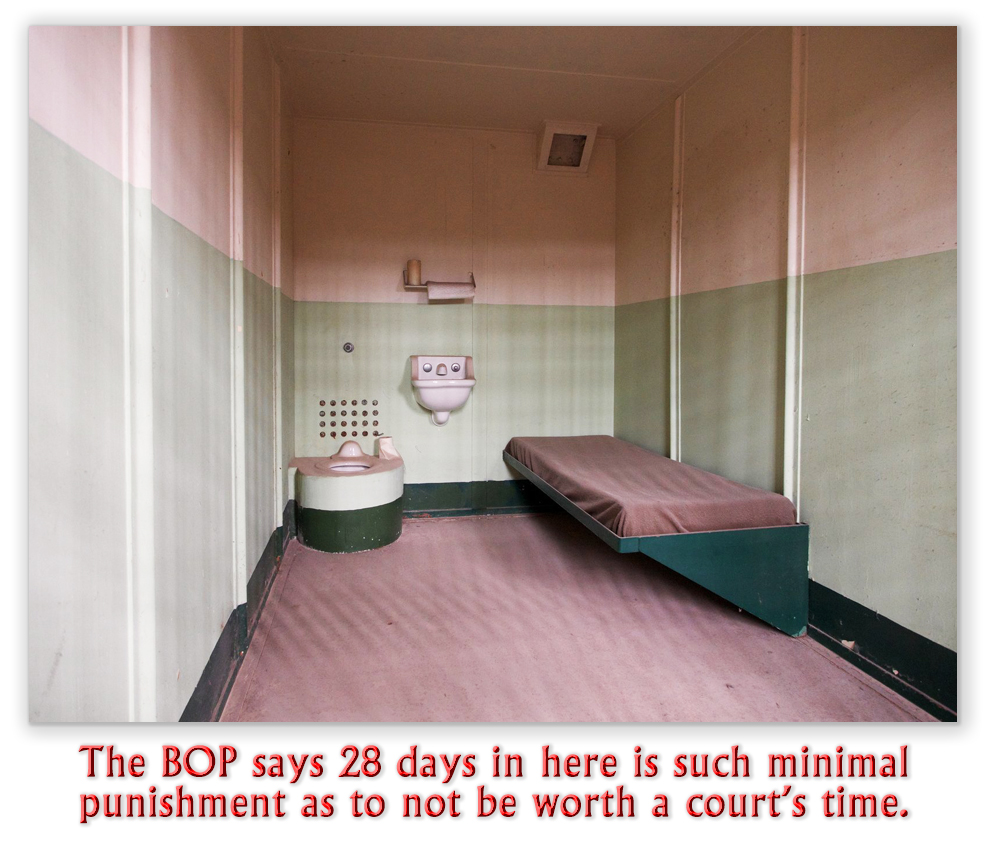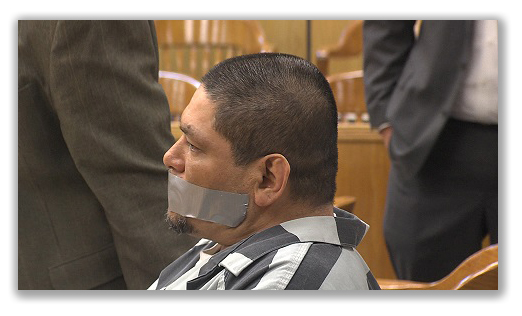We post news and comment on federal criminal justice issues, focused primarily on trial and post-conviction matters, legislative initiatives, and sentencing issues.

WHAT THE HECK? CIRCUIT RULES ADVERSE PRISON DISCIPLINARY DECISION DOES NOT BLOCK SUIT
 State prisoner Darvin Santos sued prison officers for using excessive force against him in violation of his constitutional rights. The alleged excessive force was used during an altercation between Darvin and officers that resulted in his being found to have violated a laundry list of prison rules.
State prisoner Darvin Santos sued prison officers for using excessive force against him in violation of his constitutional rights. The alleged excessive force was used during an altercation between Darvin and officers that resulted in his being found to have violated a laundry list of prison rules.
The district court granted summary judgment for the correctional officers, holding that Darvin’s claims were barred by Heck v. Humphrey.
 Heck, a 1994 Supreme Court case, holds that a defendant can’t sue officials for damages for investigative or prosecutorial violations of rights incident to a prosecution, unless he or she could prove that the conviction or sentence had been reversed on direct appeal, expunged by executive order, declared invalid by a state tribunal authorized to make such a determination, or called into question by a habeas corpus decision. This means, for example, that if the cops smash down my door without a warrant and find evidence that I have been importing under-length lobsters, which evidence is used to convict me, I cannot do my time and then sue for money damages because of the illegal search. Heck thus prevents a lot of costly and frivolous litigation.
Heck, a 1994 Supreme Court case, holds that a defendant can’t sue officials for damages for investigative or prosecutorial violations of rights incident to a prosecution, unless he or she could prove that the conviction or sentence had been reversed on direct appeal, expunged by executive order, declared invalid by a state tribunal authorized to make such a determination, or called into question by a habeas corpus decision. This means, for example, that if the cops smash down my door without a warrant and find evidence that I have been importing under-length lobsters, which evidence is used to convict me, I cannot do my time and then sue for money damages because of the illegal search. Heck thus prevents a lot of costly and frivolous litigation.
Darvin’s district court extended Heck to a disciplinary proceeding, holding that unless he could show the disciplinary proceeding resulting from the incident where the excessive force was used had been overturned, Heck barred his lawsuit.
As a general proposition, this holding is pernicious. The standard of evidence for a criminal conviction – reasonable doubt – provides some protection against a defendant having been railroaded into a conviction that prevents a later civil action judged under the more relaxed “preponderance of the evidence” standard. But the standard of evidence for a prison disciplinary hearing is the laughably slight “some evidence” standard. That is, as the Supreme Court puts it, there only has to be “some evidence” to support the charge:
Instead, due process in this context requires only that there be some evidence to support the findings made in the disciplinary hearing. Although the evidence… might be characterized as meager, the record [only cannot be] so devoid of evidence that the findings of the disciplinary board were without support or otherwise arbitrary.
 I have “some evidence” that the sun’s going to rise in the west tomorrow. Holding that a prisoner’s right to vindicate a civil rights violation because of a kangaroo-court prison disciplinary hearing found him or her guilty on such a gossamer evidentiary standard is downright dangerous.
I have “some evidence” that the sun’s going to rise in the west tomorrow. Holding that a prisoner’s right to vindicate a civil rights violation because of a kangaroo-court prison disciplinary hearing found him or her guilty on such a gossamer evidentiary standard is downright dangerous.
Last week, the 5th Circuit reversed Darvin’s dismissal, but not for the reasons I prefer. Rather, the 5th noted that Heck is not “implicated by a prisoner’s challenge that threatens no consequence for his conviction or the duration of his sentence.” Instead, a claim is barred only if granting it “requires negation of an element of the criminal offense or proof of a fact that is inherently inconsistent with one underlying the criminal conviction.”
Here, the 5th said, it isn’t clear from the record whether any of Darvin’s claims were barred by Heck. Darvin was found guilty of nine rules violations, but only one – a charge of “aggravated disobedience” – might be inconsistent with his claims. As for that one, the Circuit said, the disciplinary report “does not currently permit that inference.”
Furthermore, the disciplinary sanctions imposed (except for loss of good-conduct time) only bear on the circumstances of confinement rather than on the duration. A decision that imposes such sanctions (like loss of telephone privileges, access to commissary, and the like, for a period of time) are not barred by Heck, the Circuit said.
Santos v. White, Case No. 20-30048, 2021 U.S. App. LEXIS 34120 (5th Cir., November 17, 2021)
– Thomas L. Root










